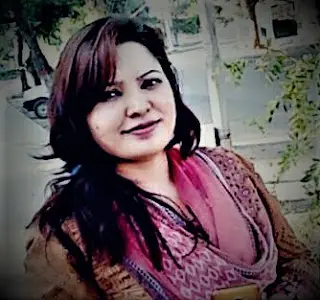Sad Poetry in Urdu text A Journey Through Pain, Love, and Longing
Sad poetry has long been a source of solace for those who experience heartbreak, loneliness, and deep emotions. It speaks to the human soul, touching on themes of lost love, unanswered questions, and the agony of waiting. In this article, we explore the depth of sad poetry, using poignant verses to illustrate its power and emotional impact.
The Power of Sad Poetry in Urdu Text
Sad poetry is more than just words on paper; it is an expression of the heart’s deepest emotions. It resonates with readers who have experienced sorrow, capturing their emotions in beautifully crafted lines. The structure of sad poetry often mirrors the pain and longing that the poet feels, making it a compelling and relatable art form.
A Poem of Unanswered Questions and Yearning
Don’t give me sleep,
Don’t give me this torment,
I will ask you a question.
You don’t give me the answer.
These lines encapsulate the frustration of seeking answers that never come. They speak to the longing for closure, the ache of unfulfilled expectations, and the struggle to move forward. The poet’s plea is not just for an answer but for an escape from the torment of uncertainty.
Symbolism in Sad Poetry
Be the color red,
Don’t give me that rose.
Red often symbolizes passion, love, and sometimes danger. By rejecting the rose, a universal symbol of love, the poet expresses a refusal to accept a love that brings more pain than joy. The imagery evokes a sense of rejection and sorrow, reinforcing the theme of loss.
The Weight of Anxiety and Loneliness
I am making you anxious.
The anxiety is dull,
The evening is sad.
But don’t give me wine.
Evenings are often associated with reflection and melancholy. The poet acknowledges the presence of anxiety, describing it as dull, persistent, and inescapable. Wine, which is traditionally used to drown sorrows, is rejected—perhaps suggesting that escapism is not the solution.
A Cry for Light in Darkness
That I never asked for,
You don’t give me the answer,
The light itself is Kajal,
Don’t give me the sunlight.
Here, the poet draws a stark contrast between light and darkness. Kajal is used to enhance the beauty of the eyes, yet it also symbolizes darkness. The rejection of sunlight signifies a preference for the familiar pain of the night, rather than the harsh truth that daylight might bring.
Why Sad Poetry Resonates
Sad poetry resonates deeply because it validates emotions that many feel but struggle to express. It provides a cathartic release, allowing readers to see their pain reflected in poetic form. This connection between poet and reader creates a shared experience of sorrow, making sad poetry a powerful form of emotional healing.
Sad poetry is a testament to the complexities of human emotions. It captures the depth of love, loss, and longing in a way that few other art forms can. Whether you are seeking solace in a difficult time or simply appreciating the beauty of poignant words, sad poetry has the power to move and inspire. As we navigate the intricacies of life, poetry remains a faithful companion, echoing our innermost thoughts and feelings.
مُجھ کو خواب مَت دینا
یہ عذاب مَت دینا
مَیں سوال پُوچھوں گی
تُم جواب مَت دینا
سُرخ رَنگ ہو جس کا
وہ گُلاب مَت دینا
مُضطرب تو رہتی ہوں
اِضطراب مَت دینا
شام ہے اُداسی ہے
پر شَراب مَت دینا
جو کبھی نہیں مانگا
وہ حساب مَت دینا
روشنی ہے خود کاجؔل
آفتاب مَت دینا
سُمیرا سلیم کاجؔل
اسلام آباد
mujh ko khwab mat dina
ya azab mat dina
mien swal puchon gi
tum jawab mat dina
surkh rang ho jas ka
wah gulab mat dina
muztarb to rahti hon
iztarab mat dina
sham hay udasi hay
par sharab mat dina
jo kabhi nihen manga
wah hasab mat dina
roshani hay khud kajal
aftab mat dina
Sumeira Saleem Kajal (Islamabad Pakistan)
English Poetry
Don’t Give me sleep,
Don’t give me this torment,
I will ask you a question.
You don’t give me the answer,
be the color red,
don’t give me that rose,
I am making you anxious.
The anxiety is dull,
the evening is sad.
But don’t give me wine,
that I never asked for,
You don’t give me the answer,
the light itself is Kajal.
don’t give me the sunlight,



